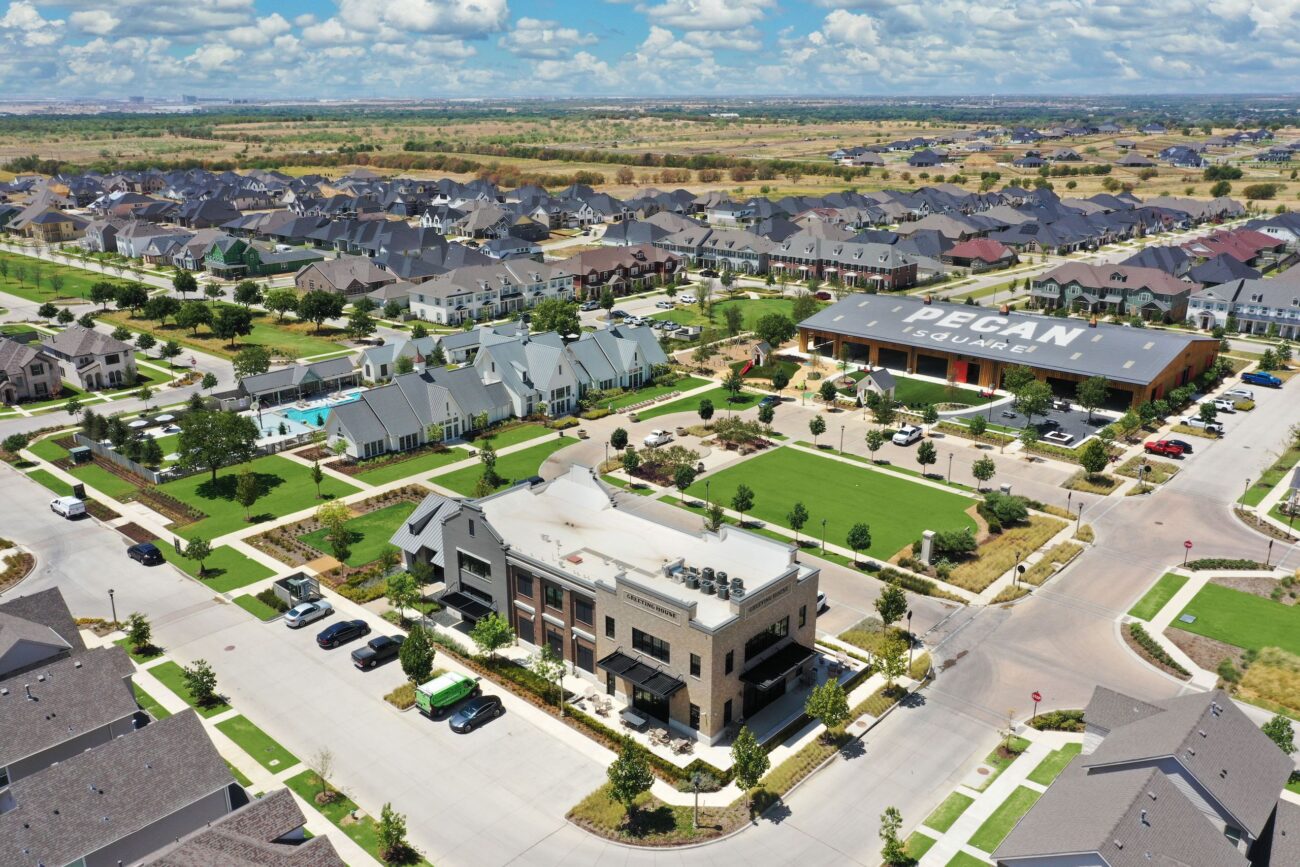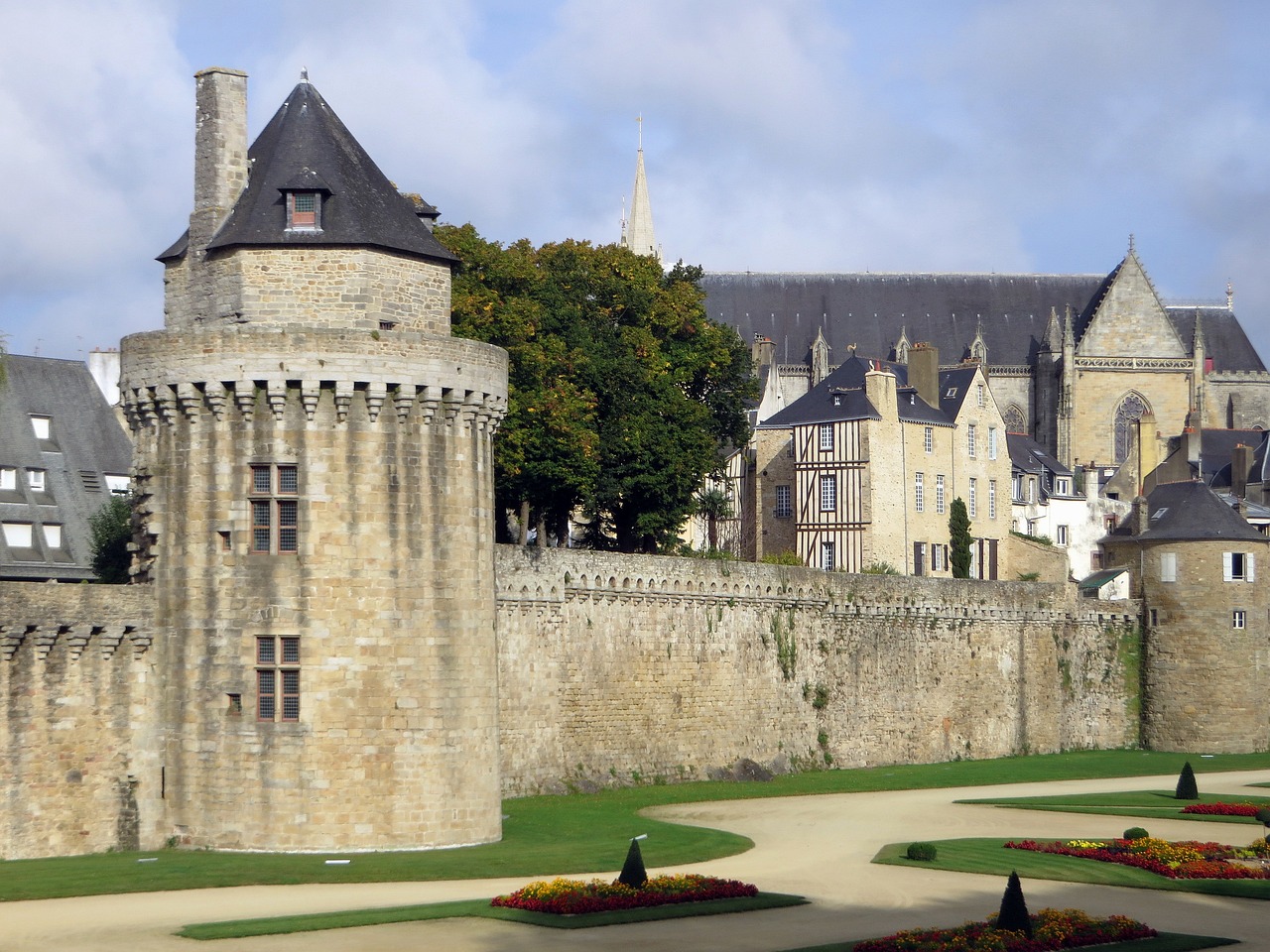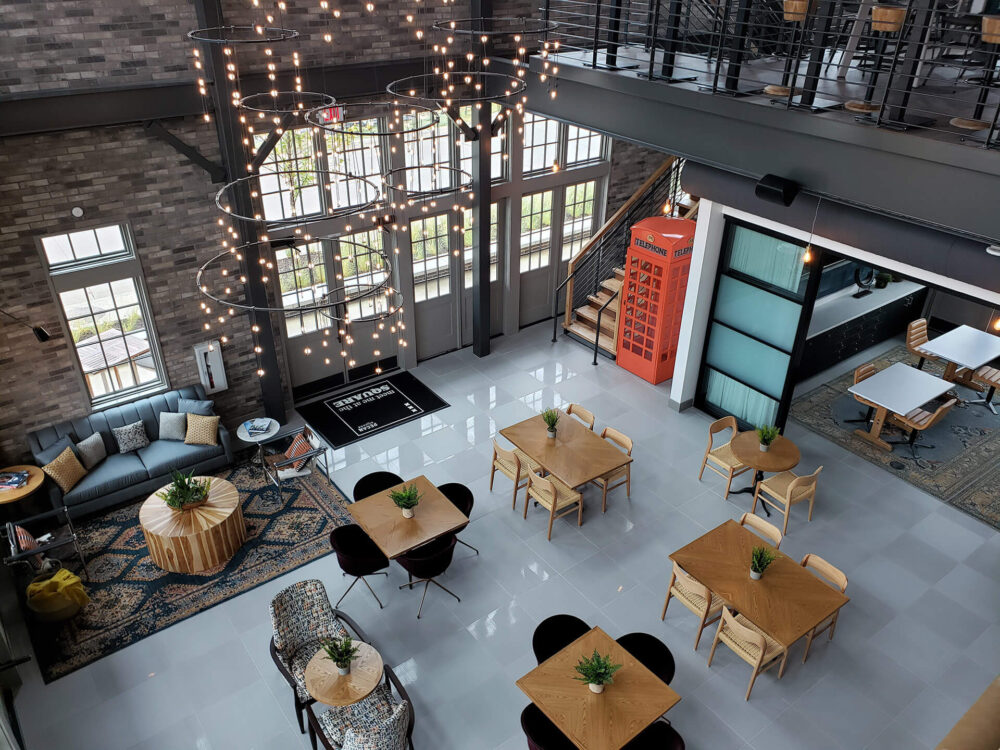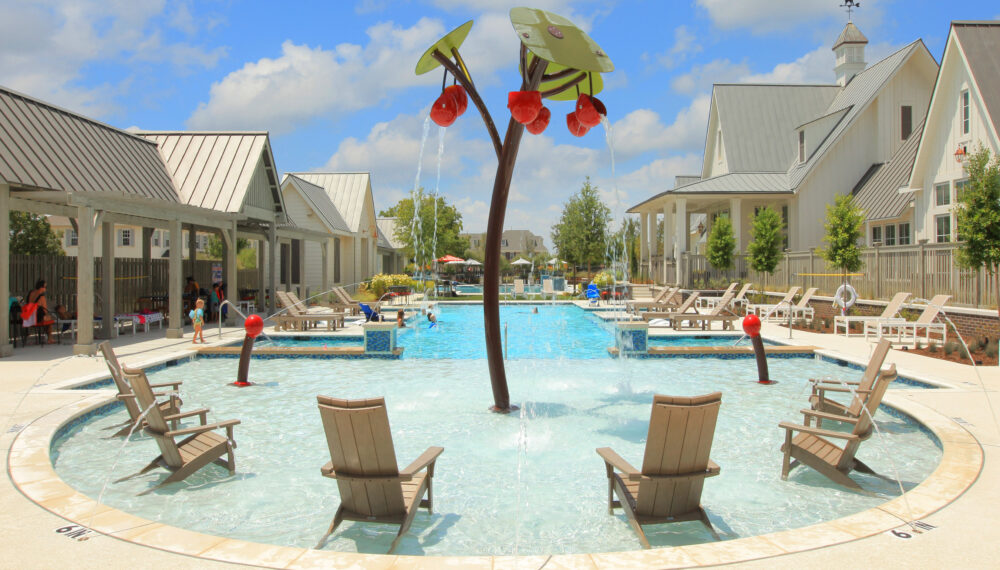
Gated Isn’t So Great: Why a Planned Community Is a Better Alternative
More and more Americans are moving to the suburbs. There are many reasons behind this shift: the rise of remote work, a desire to escape the city, and bigger houses for less money, to name a few. Suburbs typically also offer more amenities, less traffic, are closer to nature, and have a lower crime rate.
Suburban gated communities in DFW are popular for many of these reasons. But they come with their own set of problems, which could be why non-gated planned new home communities (also called master-planned communities) like Pecan Square by Hillwood are attracting buyers and overall outperforming the new home market.
What Are Gated Communities?
Gated communities have been around since ancient times. The walls of Jericho were built about 8000 BCE. Hundreds of medieval towns and cities were fortified with walls. Quebec, Ontario still retains some of its old city walls that date back hundreds of years. Walls were built around cities to keep invaders out and citizens safe.

In the early 20th century, suburban gated communities in DFW and many other regions began springing up. Houses within these neighborhoods targeted the wealthiest homeowners who wanted extra security and exclusivity and were willing to pay for it.
Gated communities became more common in the U.S. in the last decades of the 20th century. Physical hallmarks of these communities include:
- Walls: Like those found in the ancient cities, walls keep “unwanted elements” out, providing a secure enclave for wealthy homeowners.
- Controlled access: Entry is only possible at designated checkpoints, where homeowners may open the gate with a code or an access card, or be admitted by a guard that mans the gate. Anyone that does not live in the community must be granted permission to enter by a homeowner.
- Security measures: Gated communities typically employ security guards who, in addition to manning the gates, patrol the neighborhood.
- Community amenities: Homeownership in a gated community may include access to a community swimming pool, tennis or pickleball courts, a clubhouse, and other amenities. Some gated communities may offer planned social events.
- Expensive homes: Gated communities typically contain luxury homes with high-end finish outs on large lots and usually fetch high prices.
Pros and Cons of a Gated Community
Beyond the actual physical characteristics, gated communities also promise homebuyers:
- Security: Living behind the walls and a manned gate gives a feeling of being removed from the realities of the broader community.
- Privacy: Non-residents must be admitted to the community. This gives residents a heightened sense of protection from the prying eyes of the outside world.
- Exclusivity: Because home and community maintenance prices are high, residents are assured they will live in an exclusive community of people who are like them in class and economic circumstances.
While many consider these to be positive aspects of life inside gated communities, not everyone does. In fact, some consider these drawbacks. The retreat behind walled communities may seem to provide extra security while in fact creating a greater divide and thus more division and economic disparity in cities and neighborhoods, which statistically leads to higher crime rates.
In many ways, gated communities are less private than non-gated communities. Strict security regulations can inhibit personal freedoms. Security guards (and sometimes the neighbors they talk to) are now aware of your every visitor and delivery. Friends outside the gated enclave must be granted entry before visiting and are no longer able to “just drop by.”
Because gated communities tend to attract like-minded people, there is less diversity and a lower tolerance of differences, which can even create an “us vs. them” mentality.
There may be even bigger consequences to the proliferation of gated communities. A publication by the American Anthropological Society suggests that “this retreat to secured enclaves with walls, gates, and guards materially and symbolically contradicts American ethos and values.”
Gated vs. Non-Gated Communities
A non-gated new home planned community has many of the aspects that make a gated community attractive, including a suburban location, carefully designed use of greenspace, and community amenities. Many new home communities, like Pecan Square, also provide residents with an array of planned social activities to help residents meet and get to know their neighbors.
A non-gated planned community also differs from a gated one in several important ways:
Affordability: Unlike gated communities that contain a limited number of luxury homes on large lots, new home communities offer a range of home types, sizes, and prices. This means a wider range of buyers can afford them, including young families, first time homebuyers, and retirees. Pecan Square’s new homes start in the high $300,000s.
Diversity: A wider range of home types and prices means that more people from more walks of life can be neighbors. People who might not be able to afford a luxury home in a gated community find that a new home in a planned community is within reach.
Community: While homebuyers who select a gated community choose an exclusive enclave, those who choose to live in a planned community without gates are selecting a neighborhood. They’re making a choice to be a part of a group of neighbors who share a lifestyle together. Inclusion, diversity, and community are an integral part of the social fabric.
Pecan Square Offers More than Most Planned Communities
When you compare gated vs. non gated communities, you’ll see that most planned communities offer homes, basic amenities, green spaces, and the opportunity to meet your neighbors.
But, like most of Hillwood’s new home communities, Pecan Square’s amenities far exceed the basics offered elsewhere. In fact, many of our amenities have received awards from the Dallas Builders’ Association:
- The Arena has outdoor and indoor spaces with playgrounds, basketball and pickleball courts, an outdoor kitchen, fire pits, a stage for live music, big screens, lawn games, and more.

- The Greeting House offers an expansive coworking space with meeting rooms, printing and copying capabilities, lockers, a snack station, and more.

- Jackson Hall is an award-winning amenity with a spacious game room, two resort-style pools and a splash area, a fully equipped fitness center, and more.

Our neighborhood design was intentionally created to be walkable, with a vast network of paths and trails, so people could walk to our amenities, walk their children to the onsite elementary school, and bump into their neighbors, all while enjoying the natural beauty around them.
Pecan Square’s award-winning lifestyle program helps neighbors form friendships through community events, workshops, clubs and activities that are open to all, like:
- The 4th of July Freedom Fest
- The Puh-Kahn Festival
- The Crafters Club
- The Dallas Cowboys Rowdies
- Community-based philanthropy projects
From adult happy hours to kid-centric ”camps,” there is something for everyone. And no walls to keep anyone out!
To learn more about our new home planned community, stop by Pecan Square’s Greeting House for a tour! Our builders have available inventory, and many are offering incentives! Browse for your home online, then visit our builder’s models to learn more about special offers.